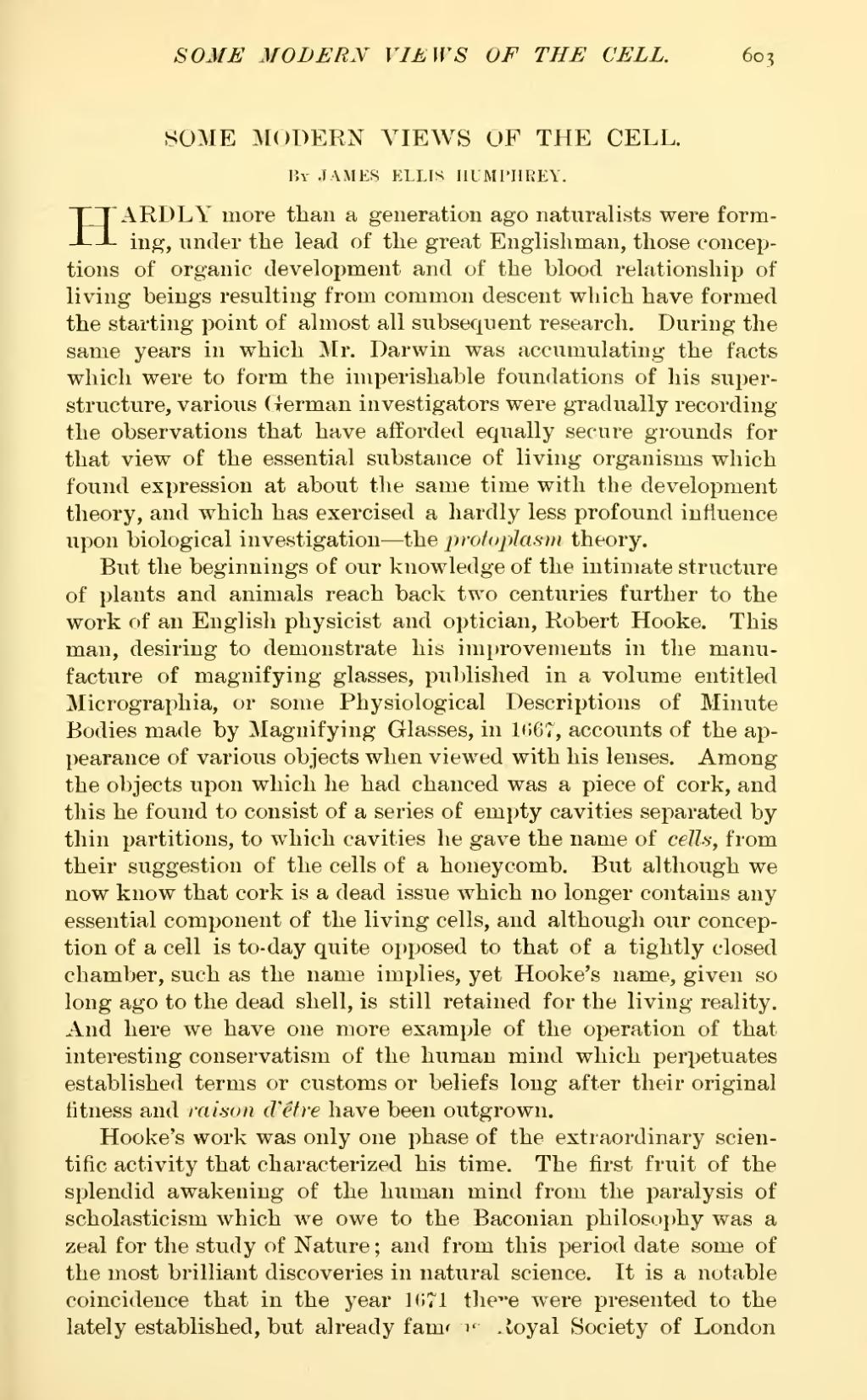| SOME MODERN VIEWS OF THE CELL. |
By JAMES ELLIS HUMPHREY.
HARDLY more than a generation ago naturalists were forming, under the lead of the great Englishman, those conceptions of organic development and of the blood relationship of living beings resulting from common descent which have formed the starting point of almost all subsequent research. During the same years in which Mr. Darwin was accumulating the facts which were to form the imperishable foundations of his superstructure, various German investigators were gradually recording the observations that have afforded equally secure grounds for that view of the essential substance of living organisms which found expression at about the same time with the development theory, and which has exercised a hardly less profound influence upon biological investigation—the protoplasm theory.
But the beginnings of our knowledge of the intimate structure of plants and animals reach back two centuries further to the work of an English physicist and optician, Robert Hooke. This man, desiring to demonstrate his improvements in the manufacture of magnifying glasses, published in a volume entitled Micrographia, or some Physiological Descriptions of Minute Bodies made by Magnifying Glasses, in 1667, accounts of the appearance of various objects when viewed with his lenses. Among the objects upon which he had chanced was a piece of cork, and this he found to consist of a series of empty cavities separated by thin partitions, to which cavities he gave the name of cells, from their suggestion of the cells of a honeycomb. But although we now know that cork is a dead issue which no longer contains any essential component of the living cells, and although our conception of a cell is to-day quite opposed to that of a tightly closed chamber, such as the name implies, yet Hooke's name, given so long ago to the dead shell, is still retained for the living reality. And here we have one more example of the operation of that interesting conservatism of the human mind which perpetuates established terms or customs or beliefs long after their original fitness and raison d'étre have been outgrown.
Hooke's work was only one phase of the extraordinary scientific activity that characterized his time. The first fruit of the splendid awakening of the human mind from the paralysis of scholasticism which we owe to the Baconian philosophy was a zeal for the study of Nature; and from this period date some of the most brilliant discoveries in natural science. It is a notable coincidence that in the year 1671 there were presented to the lately established, but already famous Royal Society of London
